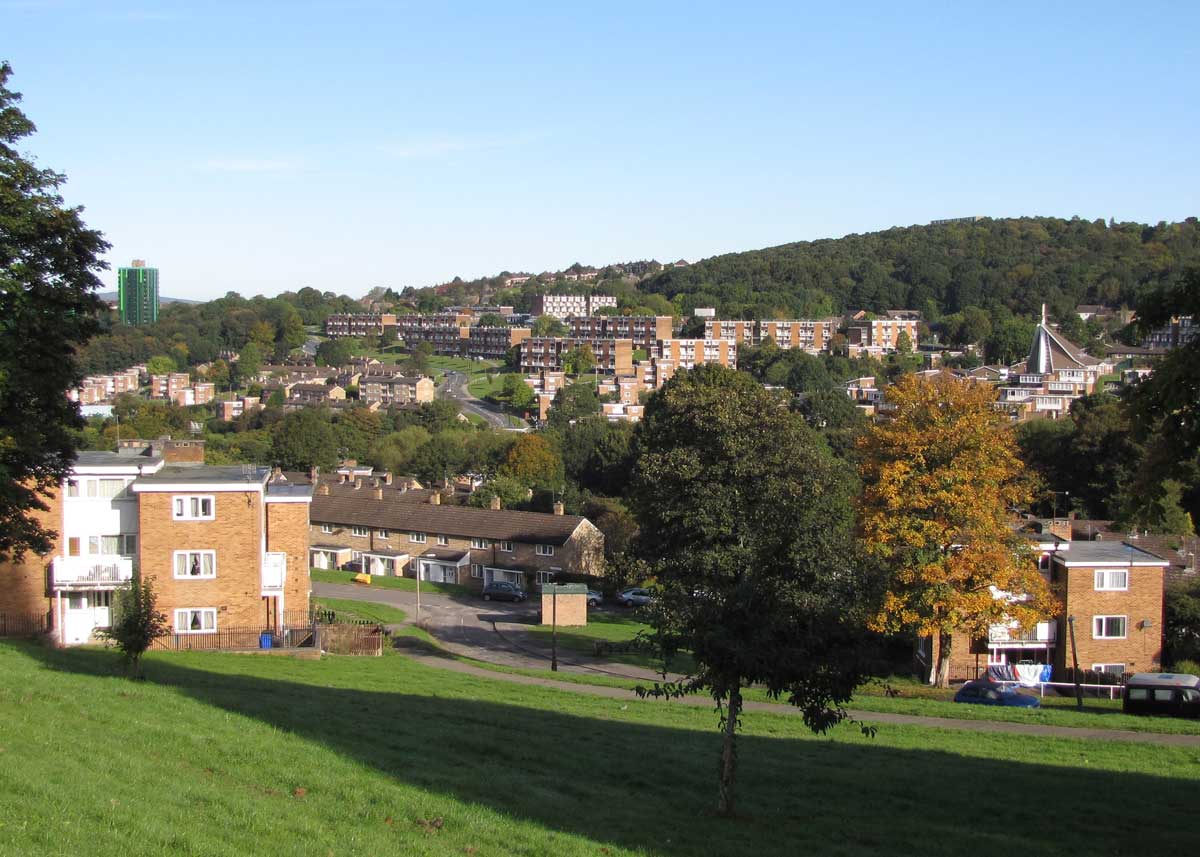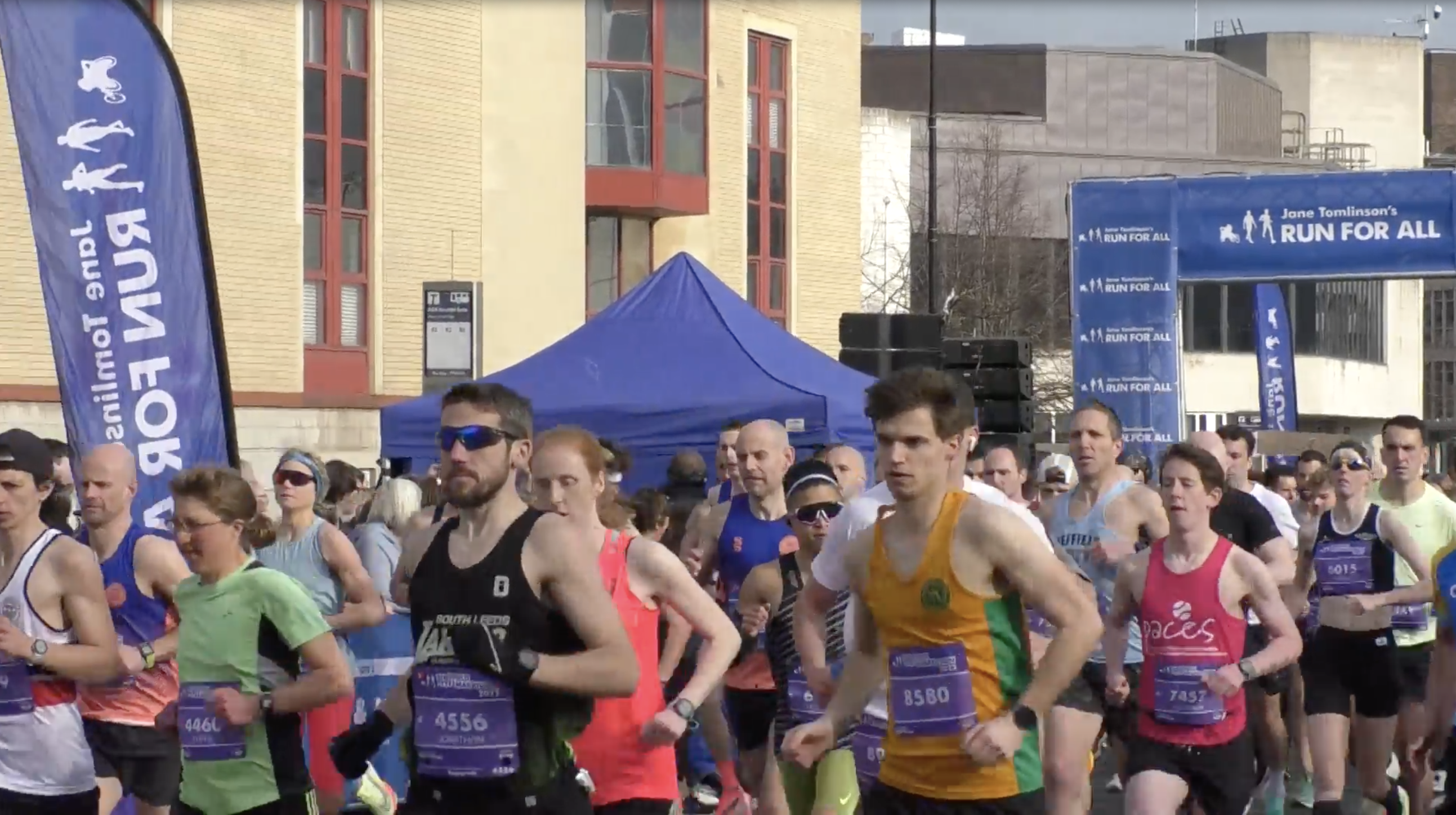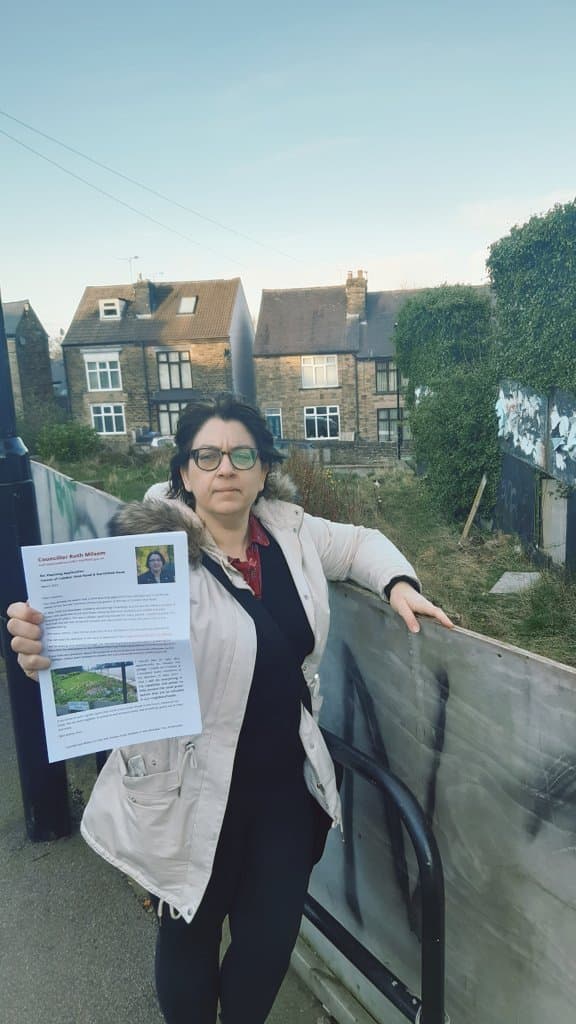
Peace In The Park could be cancelled this year unless £5,000 is fundraised by Friday
Organisers behind one of Sheffield's most beloved community arts festivals fear the event may not go ahead this year unless they can fundraise £5,000 by Friday. Peace In The Park first evolved 19 years ago from grassroots protests against war, and has since become "a real community event" that brings people of all ages together for a day music, arts and advocating for world peace. But after the pandemic has made it difficult for fundraising to go ahead, the entirely free and volunteer run event is now at risk of being cancelled this year. Volunteer Marketing and Fundraising Assistant, Roxie Rho, 35, said: "We need to make this money in a week, or it's just not going to happen. "It's unreal the amount it (Peace In The Park) touches you and the difference it makes, it's all free and It's just a heart-warming and lovely day and I think we do need that right now."
The Peace In The Park team currently have £5,200 in funds for the festival, but the festival cannot go ahead unless they hit their goal of £10,000 by Friday the first of April. Overall, the event costs only £25,000 to run, with artists, performers and bands all performing at the event for free. The organisers expect the additional £15,000 to come from fundraisers and grants and the money raised will cover the essentials for the day including toilets, sound systems, generators and marquees. The festival draws in crowds of up to 10,000 people and organisers behind the event feel that in light of the wars in Ukraine and the Middle East, it's more important now than ever before to hold the event. Volunteer Production Coordinator, Hope Cook, 26, said: "I think everyone coming together after 2 years of the pandemic and now a war, to collect together to promote peace and have a good day is going to be paramount to people's mental health's and reconnecting us."View this post on Instagram

Image by Tim Dennell

Harsher laws on phone use in cars being driven into action around South Yorkshire
New laws around driving whilst using a mobile phone have come into place across England over the weekend. South Yorkshire police put out a message to drivers instructing them not to use mobile phones at all while driving. Manager of South Yorkshire Safer Roads, Joanne Wehrl, said the group enforce traffic laws throughout the South Yorkshire district. The aim of South Yorkshire Safer roads partnership is to cut the number of people who are injured in a road traffic collision, and to try and make South Yorkshire's roads safer. Joanne Wehrl said: "Its so easy for people to do something about this and to make the roads safer for them and everyone else." Joanne told us about a car accident where a young girl called Zoe was killed when a driver crashed into her because they were using a mobile phone.

Joanne Wehrl, manager of South Yorkshire safer roads

Sheffield Road

Sheffield student left stranded in Madrid after being robbed while supporting Manchester United tells his story
A Sheffield student says ‘he has never felt loneliness like it’ while he was left stranded in Madrid after thugs stole his passport, phone and debit card. Kieran Spencer, from the University of Sheffield, travelled out to Madrid last month to watch Manchester United’s Champions League fixture against Atletico Madrid. He was robbed while walking back to his accommodation from a night out on the Saturday he was supposed to fly home. He was left sleeping in Madrid airport while he organised a temporary passport to get home. Kieran, who lives in Manchester, said: “I was walking home alone at about 5:30 when I was pushed into a side street. Next thing I know I was rugby tackled and three people are kicking me in the stomach. They started checking my pockets and that’s where they took my phone, wallet and passport. Mr Spencer's friends had to travel home as planned on Saturday leaving him with €250 to get through until the British embassy opened on Monday. A temporary passport costs €125 so half of his money was already accounted for.

Kieran and his friends in the Wanda Metropolitano

Peterborough United 0 – 0 Doncaster Rovers Belles: Donny don’t punish Posh
Doncaster Rovers Belles were held to an away point by Peterborough United on Sunday afternoon. The Belles remain second, nine points behind Birmingham & West Midlands but with two games in hand. Posh remain seventh, lodged firmly in mid-table and without a win since the beginning of February. The home side started the brightest, with Evie Driscoll-King and Katie Steward both having opportunities to put United in front. Despite a lacklustre opening half, Rovers could have been ahead just before half time as Nadia Khan's long range effort deflected onto the crossbar. The Belles struck the woodwork again on the hour mark, as Charlotte Dinsdale's volley from a Lauren Breen corner rattled the post.

Photography - Andy Powell

£100m transformation to go ahead for Gleadless Valley
Proposals for a £100m transformation of Gleadless Valley have been approved. The Gleadless Valley Masterplan, which includes developments in housing, green spaces and employment opportunities, was given the go-ahead on 24 March after three months of consultations with residents. Changes include the construction of 80 Older Persons Independent Living Scheme apartments and 109 new build houses and apartments. Existing maisonettes are set to be replaced and remodelled while 51 blocks of flats will be externally refurbished. The Masterplan also details plans to upgrade parks and play equipment, increase traffic calming measures and plant more trees across the estate.

Tower blocks in Gleadless Valley

Jump for Ukrainian children! Sheffield trampoline park fundraises for children in danger
A trampoline park in Sheffield hosted an open jump session to help the children of Ukraine. Jump inc Sheffield hosted the session between 3 and 4:30pm on Sunday, hoping to fill the park and raise as much money as possible. The funds from the open jump were donated to Unicef. The trampoline park is one of the largest in the UK, with over 24,000 square feet of space.

Jump Inc Sheffield

Charlie Drayton works for Jump Inc

A Ukraine flag on display

Gemma Robinson attended with her friends

St Leonard’s Day Nursery calls for help after vandalism forces closure
St Leonard’s Day Nursery in Sheffield is asking for local businesses and the community to help with repair costs after vandals smashed windows and caused substantial damage to the building yesterday. The nursery in Longley has had to close today and manager Lynne Cotton said the incident now "jeopardises the future of the nursery" as they do not have the money to repair the damage.

Damage to windows at St Leonard's Day Nursery
 A photograph posted by the nursery on Facebook shows two young boys at a fence outside the building, who they believe to be responsible for the vandalism.
Parents and carers were notified last night of the closure this morning and it is not known yet when the nursery will re-open.
Other parts of the church building, which are not designed for educational use, will have to be used by staff when the nursery does open its doors again after a clean-up operation today.
Anyone with any information about the incident should contact South Yorkshire Police on 101.
A photograph posted by the nursery on Facebook shows two young boys at a fence outside the building, who they believe to be responsible for the vandalism.
Parents and carers were notified last night of the closure this morning and it is not known yet when the nursery will re-open.
Other parts of the church building, which are not designed for educational use, will have to be used by staff when the nursery does open its doors again after a clean-up operation today.
Anyone with any information about the incident should contact South Yorkshire Police on 101.
Yorkshire celebrates UEFA’s big step for women and sell out football final after they become home to TWO hosting venues
The biggest European women’s football event, attracting over 48,000 spectators, is coming to Sheffield and Rotherham. This July, Rotherham United’s New York Stadium and Sheffield United’s Bramall Lane are proudly hosting eight UEFA Women’s Euro matches. South Yorkshire is now encouraging people across the region to get involved and do their part to celebrate this monumental achievement for women.

Rotherham's New York Stadium. Source: UEFA

Sheffield United's stadium. Source: UEFA

Tim Hollingsworth
 There are also encouraging children of all ages and gender to get involved this season by offering schools tournament focused cross-curriculum resources for Key Stage 2 and 3 to help bring the biggest women’s football event in Europe to life.
Community Projects Officer, Sheffield City Council, Gareth Hayden said: “Hopefully we can leave a legacy for women and girls football in Sheffield and hopefully a host for tournaments in the future.
"It's important to carry on that drive and keep people's enthusiasm beyond the tournament.
"It's important that girls have a good experience at school because then that will then create that mindset of oh when I go and play outside of school, I want to join a club.
"We're mindful of making sure those links are there and that they know a girl might go to play at school.”
Rotherham Council’s Cabinet Member for Cleaner, Greener Communities, Cllr Sarah Allen, said: "This is a fantastic opportunity for the town to showcase women’s football and for visitors from around the world to see what an amazing place Rotherham is. Rotherham folk are some of the most welcoming people in the country, and I’m sure we will all come together to welcome this great event to our town.
"Rotherham has already shown it can successfully host European games having welcomed the UEFA Euro Men’s Under 17 finals in 2018, inspiring children to get involved in the world of sport. This now gives us the opportunity to inspire the next female footballers of the future and to promote participation in culture, sport and physical activity."
There are also encouraging children of all ages and gender to get involved this season by offering schools tournament focused cross-curriculum resources for Key Stage 2 and 3 to help bring the biggest women’s football event in Europe to life.
Community Projects Officer, Sheffield City Council, Gareth Hayden said: “Hopefully we can leave a legacy for women and girls football in Sheffield and hopefully a host for tournaments in the future.
"It's important to carry on that drive and keep people's enthusiasm beyond the tournament.
"It's important that girls have a good experience at school because then that will then create that mindset of oh when I go and play outside of school, I want to join a club.
"We're mindful of making sure those links are there and that they know a girl might go to play at school.”
Rotherham Council’s Cabinet Member for Cleaner, Greener Communities, Cllr Sarah Allen, said: "This is a fantastic opportunity for the town to showcase women’s football and for visitors from around the world to see what an amazing place Rotherham is. Rotherham folk are some of the most welcoming people in the country, and I’m sure we will all come together to welcome this great event to our town.
"Rotherham has already shown it can successfully host European games having welcomed the UEFA Euro Men’s Under 17 finals in 2018, inspiring children to get involved in the world of sport. This now gives us the opportunity to inspire the next female footballers of the future and to promote participation in culture, sport and physical activity."

Cllr Sarah Allen

Sheffield Half Marathon returns raising thousands for charities
Sheffield Half Marathon returned yesterday to glorious sunshine and eager participants raising thousands of pounds for great causes. A 9:30am start saw runners and spectators gather at Arundel Gate from as early as 8am. The 13-mile route through the city to the edges of the Peak District was pounded by thousands - many raising money to support charities near and far.
Emma Clarke, Chief Executive of Weston Park Cancer Charity, took part in the event alongside a team of sixty, raising around £30,000. Ms Clarke said: "The Half Marathon is incredibly important. We are stood here in the middle of Sheffield and it gives that amazing sense of community. "This is ordinary people, families, and businesses, all getting behind some amazing causes." Weston Park Cancer Charity supports specialist cancer hospitals across the country, as well as research in Sheffield to help enhance treatments for the disease. Also running was Mike Provert, raising money for Sheffield Children's Hospital, where he works and has first-hand experience of the vital treatment sick children receive. He said: "I know that we make a big difference to children's lives and it's really worthwhile raising this money as it goes towards a) the quality of their care and b) their enjoyment at the hospital." Entries for the Sheffield Half Marathon 2023 are now open.
Sheffield Wednesday move into top six after 4-1 Cheltenham victory
Sheffield Wednesday boosted their hopes of promotion this weekend after beating Cheltenham 4-1 at Hillsborough. The Owls rebounded after a fourth minute goal from Alfie May, going on to equalise in the seventh minute. Massimo Luongo made good connection from Harlee Dean's corner and headed it into the net. Wednesday then took the lead in the 58th minute with Lee Gregory's goal to the bottom left corner.
A cross from Marvin Johnson at the left-hand side met Jack Hunt who volleyed home his first goal for the Owls. George Byers sealed the victory in the 87th minute when he cut inside the Cheltenham defence, scoring with the aid of a deflection. Sheffield Wednesday will play the struggling AFC Wimbledon this Saturday, kicking off at 3pm.The goal finally arrived for Jack! #SHWCHE
— Sheffield Wednesday (@swfc) March 26, 2022

Morning Briefing: Sheffield ‘Jump for Ukraine’, South Yorkshire to host UEFA Women’s Euro 2022 and other news
Good Morning from Sheffield Wire, here's what stories are coming up today. Rotherham and Sheffield to host the largest women's football event in UEFA history. Sheffield trampoline park, Jump Inc, "Jump for Ukraine" in efforts to raise money for Ukrainian children. The Yorkshire 'Speak Their Name' project to create a quilt designed by local people who have been bereaved to suicide. A Sheffield student stranded in Spain after being beaten up and having his passport stolen. The Sheffield half marathon took place over the weekend. And much more to come.

‘Outrageous’ plans to build apartment block would ‘greatly decrease’ quality of life in Crookes, say residents
The Crookes community has launched efforts to oppose the plans, which would see 13 flats and three retail units built on Cobden View Road. This is the third time the local community has come together to object to planning applications on the site. The area used to be a community garden managed by nearby St Timothy's church but has been empty for two years, attracting anti-social behaviour and becoming an eye-sore for the local community. Councillor Ruth Milsom said: "It was heart-breaking to watch the destruction of what had been a much loved and valued community garden. "But the strength of feeling of the local community, and it's readiness to act, remain steadfast. A cynical tactic of the developer is to argue that rejecting their plans for tiny rabbit hutch apartments would rob the area of much needed new builds." When the first planning applications was submitted the community applied for the site to be a designated Village Green with the support of MP Olivia Blake and many local councillors. Such green spaces, says local resident Jane Monach, 77, are "little jewels" for the local community. John Vose, who lives directly opposite the proposed flats said: "The plans are outrageous. The monster building would greatly decrease my quality of life. "The people who lived next door already sold their house and moved away." Locals say the building would block light from reaching their homes, decrease their privacy, increase congestion, and make crossing the road unsafe. They also claim that parking, already an issue in the area, would be made increasingly difficult. Previous plans for 18 flats were denied after they failed to meet national space standards. The revised plans will provide 11 two bedroom and two one bedroom apartments with three retail units. These will not be used for food and drink outlets. Some have questioned the need for more outlets after the closure of two popular stores, Fulton's Foods and Priceless, due to rising rent prices. Hopeful local councillor Minesh Parekh, said: "There are many areas in Crookes which are vacant and can be redeveloped. "There are many other things that can be done to increase footfall for Crookes which will have better social impact for the area like subsidised public transport." To read more about the plans or to share comments and objections, click here.
